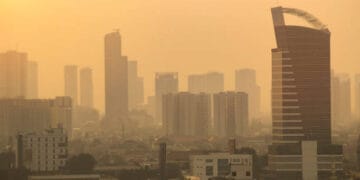Paris Mayor Anne Hidalgo has unveiled a plan to triple parking charges for large sports utility vehicles (SUVs) as part of efforts to reduce emissions and combat air pollution in the city. The proposal aims to encourage SUV owners, particularly those with higher incomes, to consider alternative modes of transportation and contribute to environmental goals.
The plan involves holding a referendum on February 4th, in which residents will vote on a specific parking tariff for heavy and polluting SUVs. If approved, the on-street parking fees for SUVs and 4×4 vehicles will increase to €18 per hour in the city center and €12 per hour in other areas. The tariff will apply to vehicles weighing more than 1.6 tonnes with combustion engines or hybrid systems and more than 2 tonnes for electric vehicles, exempting Paris residents’ parking.
Mayor Hidalgo has emphasized that the revenue generated from this tariff adjustment could amount to €35 million for the city, with the primary objectives being addressing climate change, improving road safety, and enhancing air quality. Additionally, the initiative seeks to protect the well-being of the 500,000 Parisians residing near the city’s ring road, the Périphérique, who are affected by larger vehicles entering the city.
David Belliard, Deputy Mayor of Paris for the Green party, stated that SUVs are typically purchased by wealthier individuals with higher incomes. He sees this tariff adjustment as a form of social redistribution, with the revenue contributing to the transformation of public spaces to adapt to climate change.
The proposal is designed to send a strong signal to those who drive large vehicles, encouraging them to explore alternative modes of transportation. If approved, the new parking fees will take effect in the spring, and the city of Lyon is also planning to introduce higher parking costs for larger vehicles next year.
Under Mayor Hidalgo’s leadership, Paris has implemented various measures to promote sustainable transportation and reduce the reliance on cars, including increasing parking costs, banning diesel vehicles, and expanding the bicycle lane network.
While some have welcomed these initiatives as necessary steps to combat air pollution and climate change, the French motorists’ association, 40 millions d’automobilistes, has criticized the proposed tariff adjustment, describing it as an unjustified restriction on liberties.
In other news, as the year comes to a close, there is a sense of reflection and anticipation of change in various parts of the world. Elections are scheduled in many countries, including the UK and the US, offering the possibility of new directions in leadership. Amid global challenges such as ongoing conflicts and the climate crisis, there is a shared hope for a better future.
The Guardian, a leading news organization, has continued its commitment to providing comprehensive coverage of events worldwide. In an appeal for support, readers are encouraged to contribute to the Guardian’s mission by making donations, with the goal of ensuring that journalism remains accessible to all. The Guardian’s reporting remains unrestricted by paywalls, and the support of readers is crucial in maintaining its independent journalism.
As we look ahead to the new year, the importance of journalism and the pursuit of truth in an interconnected world remains evident. The Guardian expresses its gratitude to its readers and emphasizes the value of collective efforts in shaping a brighter future.
John Crace Guardian Columnist
Explore top supply chain news stories at The Supply Chain Report. Visit ADAMftd.com for free international trade tools.
#ParisParkingFees #SUVTax #EmissionReduction #AirQuality #SustainableTransport #ClimateAction #UrbanPlanning #PublicTransportation #EnvironmentalPolicy #MayorHidalgo #SocialRedistribution #ParisReferendum #BicycleLanes #ClimateCrisis #SupportIndependentJournalism















